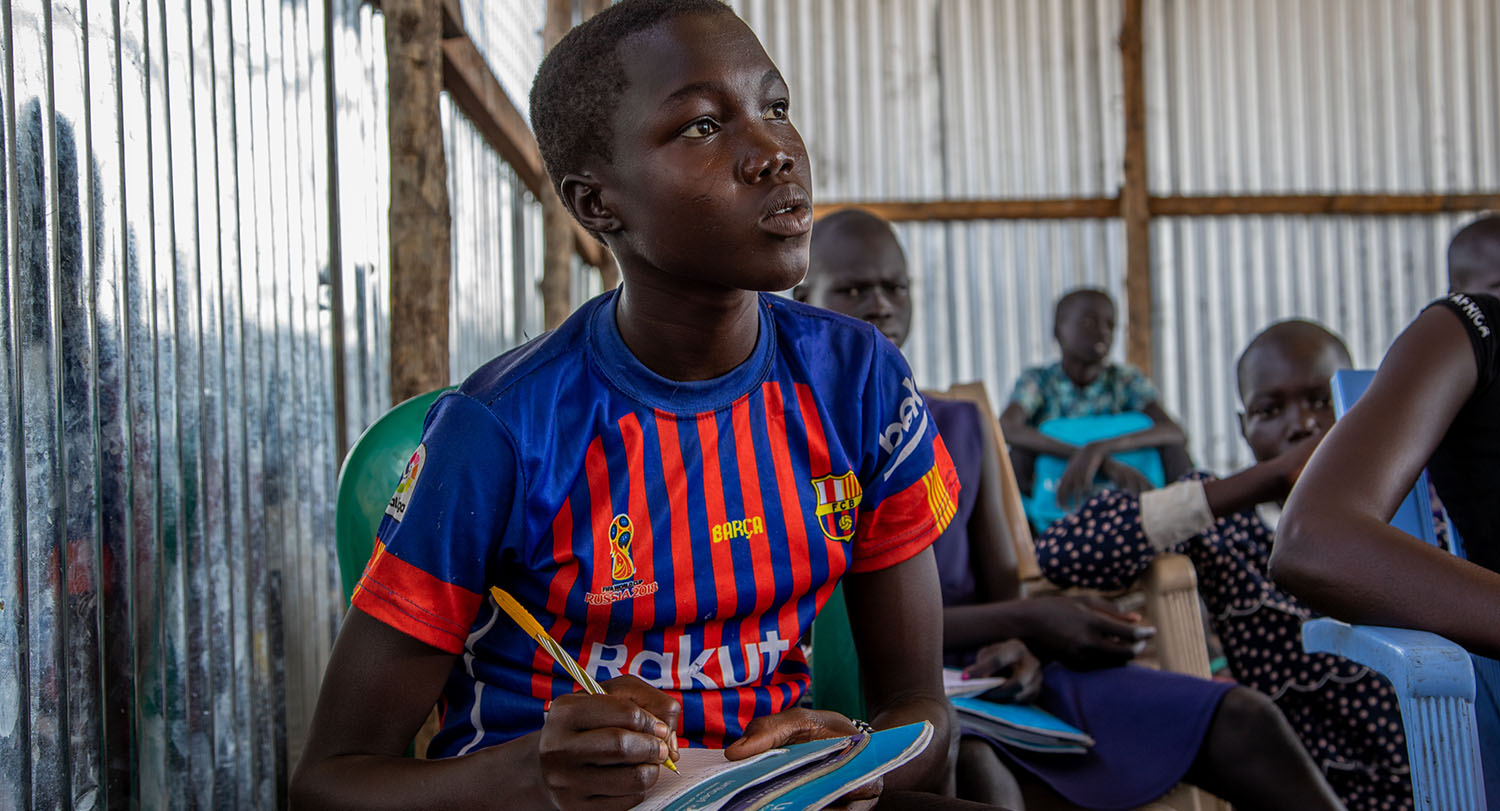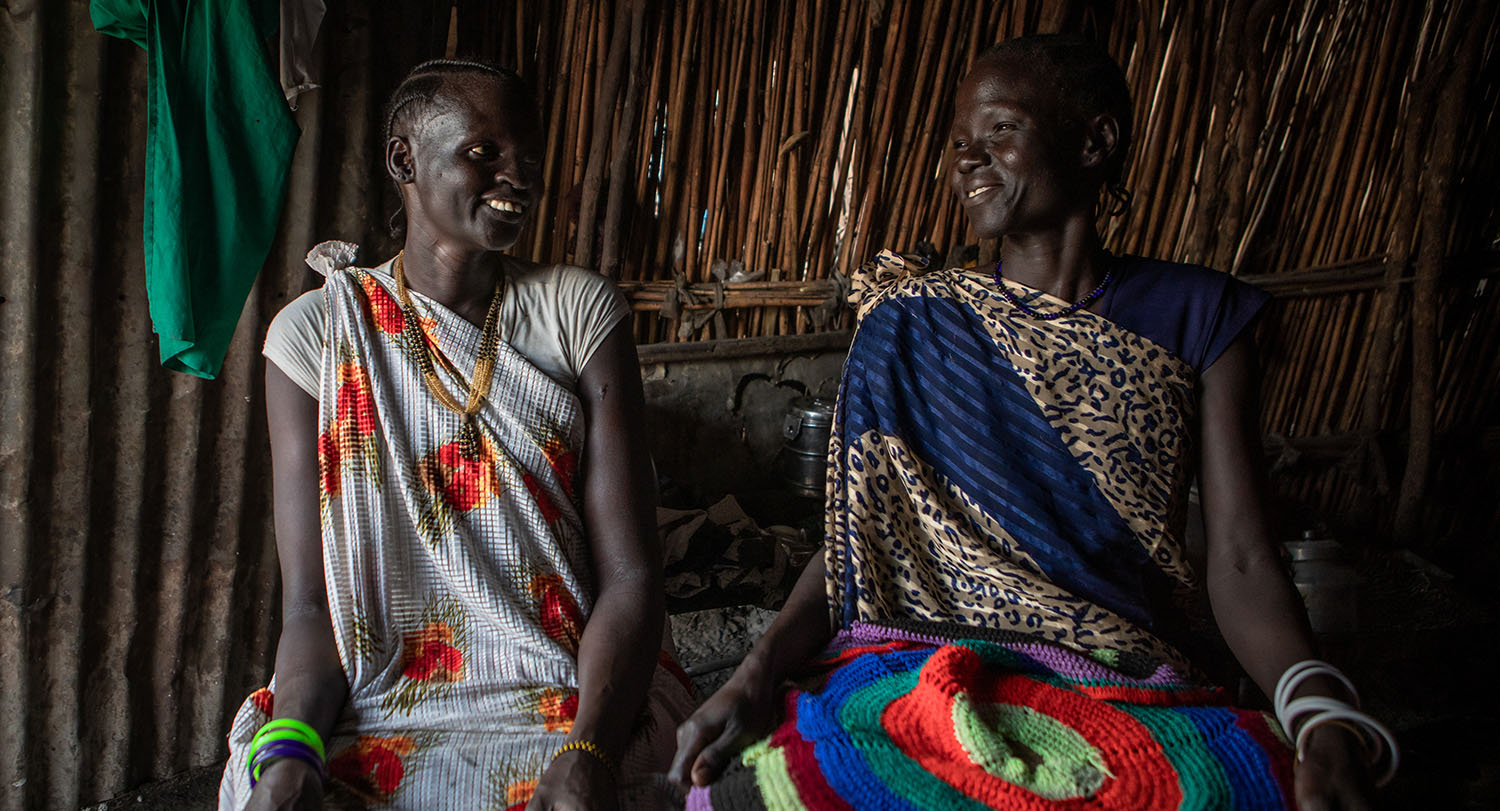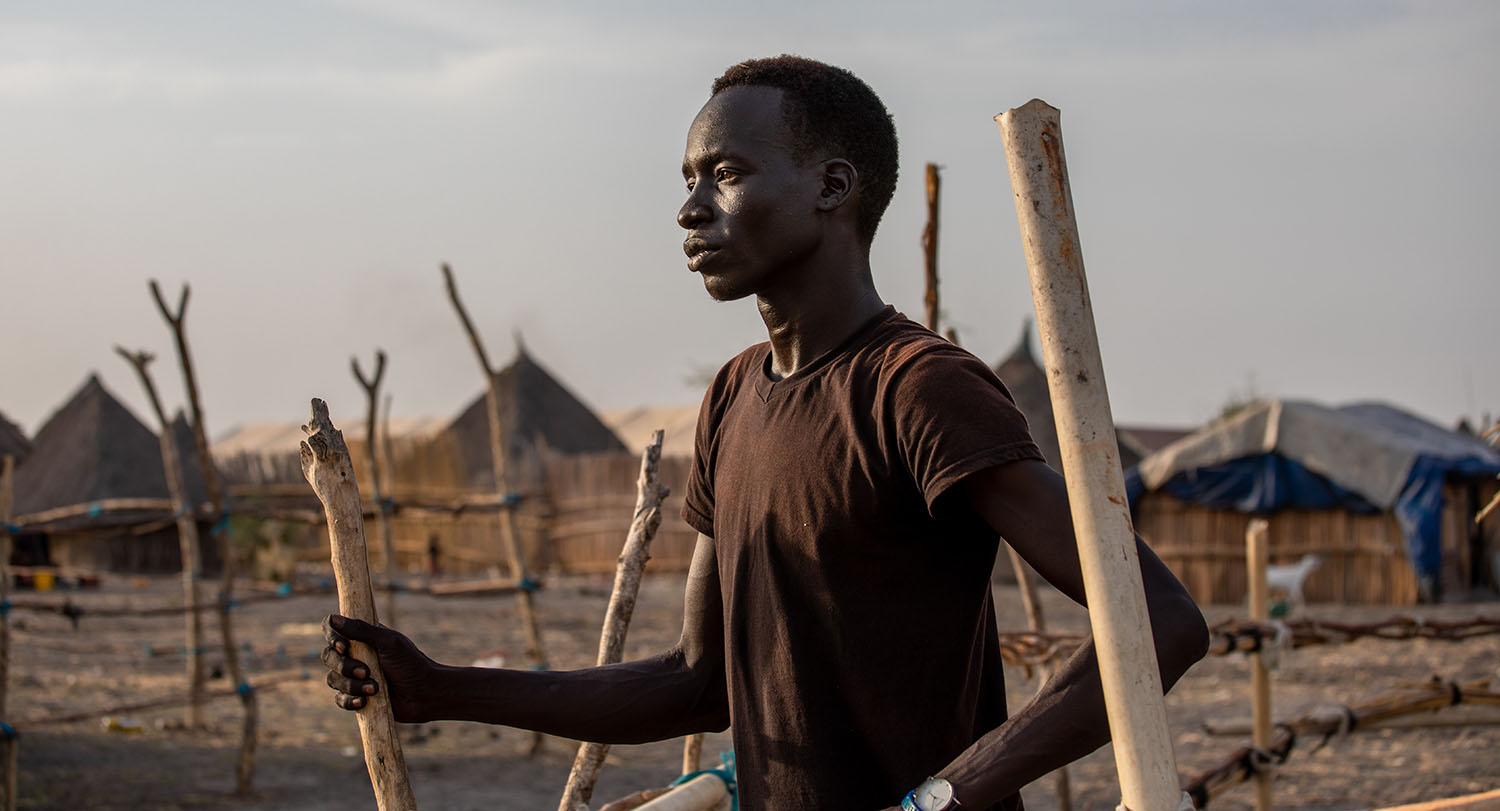Over 7,000 pupils accessed quality education with EU Humanitarian funding in South Sudan
In 2020, New Fangak saw its first primary school leaving exams since the war that started in 2013. A new project component strengthened the livelihoods of parents, enabling more girls from vulnerable families to join school.
Finn Church Aid (FCA) opened its office in New Fangak, Jonglei State in 2016 and began with an EU Humanitarian Aid (ECHO) funded project by constructing schools and attracting learners.
Currently, the support reaches 16 schools in Fangak County in four villages. Field Team Leader Dhuor Deng Kuony says that the idea of a child’s right to education has grown stronger during the past four years. New school structures, teacher training and involving the community have been vital.
“I’m personally proud when I see children coming to school and the support they get from their parents, the community and the government that runs the education affairs”, Deng says.
“The community has taken ownership of the schools. They have built the structures and parents are strongly involved in their children’s education through Parent-Teacher Associations.”
A total of 130 teachers has received training within the project, and more than 7,000 pupils can access learning spaces and materials. With awareness-campaigns included, the project has reached more than 20,000 direct beneficiaries and an estimated 60,000 indirect beneficiaries.
Supporting livelihoods of vulnerable families increase enrolment
When the initial project started in 2016, there were no schools. The education that took place was given under trees by teachers who barely had completed their primary education.
Teacher training has been an essential part of the project from the start. Qualified teachers equal quality education, and families become more motivated when they see their children not only attending school but actually learning.
Nyaluak Maker, 15, is in class 2 in William Chuol Primary School and says that teachers are now punctual, and listen and interact with learners. She describes them as friendly and motivating
“I now feel very comfortable with asking my teacher about things I did not understand during the lecture. They will come to me individually, and explain patiently until I understand”, she says.

Nyaluak Maker, 15, says that her mother encourages her to focus on her learning. Photo: Maria de la Guardia / FCA
One of the challenges in Fangak County is convincing parents to send both boys and girls to school. In pastoralist communities, parents do not traditionally send their children to school, and particularly girls are the last to access education. They are often forced to marry at an early age.
“Women role models are powerful in convincing parents. We want to show that their girls can earn a living in the future, and for instance, female teachers are good examples”, Deng says.
But even more important is responding to the immediate needs of vulnerable families. In an area prone to floods and drought, food shortages are common, and poverty widespread. Many need their children to support the daily survival of their families through cooking or working.
This is why cash transfers and livelihoods support were added to the project, with funding by EU Humanitarian Aid. Parents that farm received seeds and training and the cash transfers have enabled single-parent households particularly to establish businesses at the market.
Nyadeng Chan and Wal Diew are both widows, and they combined their cash transfers of 6,050 South Sudanese Pounds (35 euros) each to establish a shop for tea and the local bread kisra.
“We decided to use the cash for something that keeps us going in the future instead of spending all on food. That would have soon taken us back to square one”, Wal says.

Business women Diew Wal and Nyaldeng Chan in front of the restaurant they co-own and run in New Fangak, South Sudan on 8 March 2020. Parents of school-going children receive cash distributions that help them start businesses to generate an income for their families. Photo: Maria de la Guardia / FCA
First primary leaving exams since 2013
The project reached a crucial milestone in early 2020 when 43 pupils sat, and 28 passed the first primary school leaving exams in New Fangak since the war started. This makes the youth eligible to continue their education journey on a national level.
17-year-old George Juang was one of the first to complete the exams in February.
“My teachers helped me prepare well. When I passed, many people I know are more eager to join the school because they also want to pass like me”, George says.
George now dreams of an opportunity to enrol in secondary education, which is not currently available in the whole of Fangak County. Despite a physical disability as a result of polio, he is determined to become an accountant.
“School teaches you to take care of yourself, and it exposes you to different cultures. You know how to protect yourself and how to pursue your dreams.”

George Juang is one of the first in New Fangak to have sat and passed his Primary 8 exams. Photo: Maria de la Guardia / FCA
Read more about this project funded by EU Humanitarian Aid (ECHO) in our photo story.